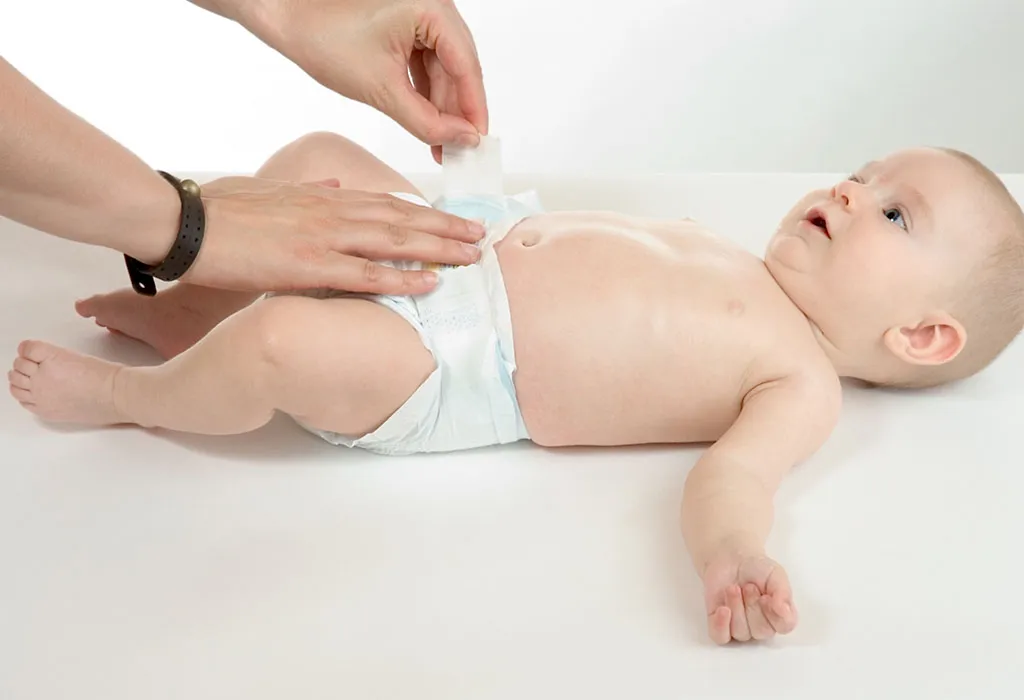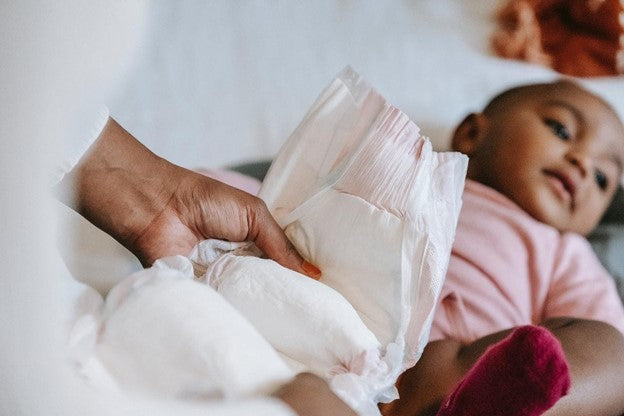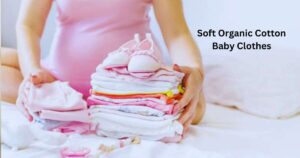Diapers can cause skin irritation and rashes in babies. They may also lead to diaper dependency and delayed potty training.
Diapers offer convenience to parents, but they come with certain downsides. Continuous use can cause skin irritation due to prolonged moisture exposure. This often results in painful rashes, making babies uncomfortable. Diapers can also lead to diaper dependency, delaying the natural process of potty training.
This may affect a child’s ability to recognize the need to use the toilet. Moreover, the constant use of disposable diapers contributes to environmental waste. They take years to decompose, causing long-term ecological harm. Considering these factors, parents should weigh the pros and cons of diaper use for their babies. Exploring alternatives like cloth diapers or regular potty training can be beneficial.
Credit: www.yellowdoodle.com
Health Concerns
Using diapers for babies can pose several health concerns. These concerns primarily affect the baby’s skin and comfort. Parents should be aware of these issues. This section highlights two main health concerns: skin irritation and diaper rash.
Skin Irritation
Diapers can cause skin irritation in babies. This happens due to prolonged contact with wetness. Wet diapers make skin soft and vulnerable. When skin rubs against the diaper, it can cause irritation. Chemicals in diapers may also irritate the baby’s skin. Fragrances and lotions used in some diapers can be harsh. Babies with sensitive skin are more prone to irritation.
Diaper Rash
Diaper rash is a common problem for babies. It occurs due to prolonged diaper use. Wet and soiled diapers create a breeding ground for bacteria. This leads to red, sore patches on the baby’s skin. Some babies may develop blisters or open sores. Diaper rash can make babies very uncomfortable. It may also cause them to cry more often.
Here are some common causes of diaper rash:
- Prolonged wetness: Leaving a wet diaper on too long.
- Chafing: Diaper rubbing against the baby’s skin.
- Infection: Bacteria and yeast growing in the diaper area.
- Allergic reactions: Sensitivity to diaper materials.
Parents should check diapers frequently. Changing diapers often can help prevent these health issues.

Credit: parenting.firstcry.com
Chemical Exposure
Diapers are convenient, but they expose babies to chemicals. These chemicals might harm a baby’s sensitive skin. Understanding the risks can help parents make informed choices.
Harmful Substances
Many diapers contain chemicals such as dioxins, dyes, and fragrances. Dioxins are by-products of the bleaching process. These can cause skin irritation or more serious health issues.
Fragrances and dyes in diapers can also pose risks. They may cause allergic reactions or disrupt a baby’s delicate skin balance.
Below is a table showing common chemicals found in diapers and their potential risks:
| Chemical | Potential Risks |
|---|---|
| Dioxins | Skin irritation, potential health risks |
| Fragrances | Allergic reactions, skin irritation |
| Dyes | Allergic reactions, disruption of skin balance |
Allergic Reactions
Babies have sensitive skin. Chemicals in diapers can cause allergic reactions. Symptoms include redness, rashes, and itching.
Some babies may develop severe reactions. These can include blisters or swelling. Parents should watch for these signs.
To minimize risks, consider using chemical-free or organic diapers. These options are less likely to cause reactions. Always consult with a pediatrician for advice.
Hygiene Issues
Using diapers for babies can lead to various hygiene issues. These issues can affect your baby’s health and well-being. In this section, we will explore two major concerns: Bacterial Infections and Yeast Infections.
Bacterial Infections
Bacterial infections are common in babies who wear diapers. Wet and soiled diapers create a warm environment. This environment is perfect for bacteria to grow. Babies with bacterial infections may experience redness and swelling. They might also have a foul odor.
To reduce the risk of bacterial infections, change diapers frequently. Clean your baby’s skin with wipes or water. Let the skin air dry before putting on a new diaper. Use antibacterial creams if needed.
Yeast Infections
Yeast infections are another concern with diaper use. These infections are caused by a fungus called Candida. This fungus thrives in moist and warm conditions. Diapers provide the ideal environment for this fungus.
Signs of a yeast infection include red, scaly rashes. The rashes may have small bumps. Babies may feel discomfort and itchiness. To prevent yeast infections, keep the diaper area dry. Use breathable diapers and antifungal creams.
Here is a quick comparison of bacterial and yeast infections:
| Infection Type | Causes | Symptoms | Prevention Tips |
|---|---|---|---|
| Bacterial | Wet diapers | Redness, swelling, foul odor | Change diapers often, clean the skin, use antibacterial creams |
| Yeast | Moist, warm conditions | Red, scaly rashes, small bumps | Keep the area dry, use breathable diapers, antifungal creams |
Maintaining good hygiene practices can help prevent these infections. Always ensure your baby stays clean and dry.
Impact On Development
Using diapers for babies can have several impacts on their development. While convenient, diapers might delay certain key developmental milestones. Below, we explore the disadvantages and how they affect your baby’s growth.
Delayed Toilet Training
Diapers can lead to delayed toilet training. Babies in diapers feel less discomfort from wetness. This might not prompt them to learn using the potty early. Parents might also rely too much on diapers. This can postpone starting the training process.
A study showed that children who wear diapers longer tend to start toilet training later. This can lead to frustrations for both the child and the parents. Starting toilet training earlier can help children develop better bladder control.
Restricted Movement
Another disadvantage is restricted movement. Diapers can be bulky and uncomfortable. This can limit a baby’s ability to crawl, walk, and move freely. Babies need to move to build their motor skills. Restricted movement might delay this important development.
Table:
| Diaper-Related Issue | Impact on Development |
|---|---|
| Bulkiness | Limits crawling and walking |
| Comfort | Reduces desire to move |
It’s essential for babies to have the freedom to move around. Parents should allow for more diaper-free time. This can help babies develop their motor skills faster.
Environmental Impact
Using diapers for babies can have a significant environmental impact. Many parents may not realize the long-term consequences. Let’s explore some of these issues in more detail.
Waste Generation
Disposable diapers contribute to a huge amount of waste. Each baby uses thousands of diapers. This results in millions of diapers being thrown away each year. This creates a massive waste management issue. Landfills fill up quickly because of this.
- Each baby uses about 6,000 diapers from birth to potty training.
- Most of these diapers end up in landfills.
- Diapers take a long time to break down.
Diapers make up a large part of household waste. This increases the burden on waste management systems. It also uses up valuable landfill space.
Non-biodegradable Materials
Most disposable diapers are made from non-biodegradable materials. These materials do not break down easily in the environment. This means they stay in landfills for hundreds of years.
| Material | Decomposition Time |
|---|---|
| Plastic | 500 years |
| Polypropylene | 500 years |
| Super Absorbent Polymers | Not biodegradable |
These materials also release harmful chemicals into the soil. This affects the health of the environment. Animals and plants can be harmed by these chemicals.
Using cloth diapers can be a better choice. They do not create as much waste. They are also made from natural materials. This makes them better for the environment.
Cost Implications
Diapers are convenient for parents. But they come with costs. These costs can add up quickly. Let’s explore the financial aspects.
Financial Burden
Buying diapers can be expensive. A baby uses many diapers each day. This means constant spending.
| Age | Diapers per Day | Monthly Cost | Yearly Cost |
|---|---|---|---|
| 0-6 months | 10-12 | $70-$90 | $840-$1080 |
| 6-12 months | 8-10 | $60-$80 | $720-$960 |
| 12-24 months | 6-8 | $50-$70 | $600-$840 |
As shown, the yearly cost can reach over $1000. This can be a significant burden for many families.
Hidden Expenses
Diapers bring other costs as well. Diaper rash creams are often needed. These creams can be costly.
- Special trash bags for diaper disposal.
- Extra laundry for accidents and leaks.
- Wipes for cleaning during changes.
These hidden expenses add up. They increase the overall cost of using diapers.
Alternatives
Diapers are convenient for parents but have several disadvantages for babies. Parents often seek alternatives to improve their baby’s comfort and health. Below are some alternatives to traditional disposable diapers.
Cloth Diapers
Cloth diapers are a popular alternative to disposable diapers. They are made from natural fibers like cotton or bamboo. These materials are gentle on a baby’s skin. Cloth diapers are reusable, which makes them eco-friendly. They reduce waste and save money in the long run.
Here are some benefits of using cloth diapers:
- They are free from harmful chemicals.
- They are breathable and keep the baby’s skin dry.
- They come in various sizes and designs.
- They can be washed and reused multiple times.
Parents should consider a few downsides. Cloth diapers require frequent washing. They can be less absorbent than disposables. However, using extra inserts can improve absorbency.
Diaper-free Methods
Another alternative is the diaper-free method, also known as elimination communication (EC). This method involves observing the baby’s signals for needing to go. Parents then take the baby to the bathroom.
Benefits of the diaper-free method include:
- Reduced risk of diaper rash.
- Less waste generated.
- Strengthened parent-baby communication.
- Earlier potty training.
Implementing the diaper-free method may be challenging at first. It requires patience and keen observation. Parents need to be prepared for accidents. Consistency is key to success with this method.
Both cloth diapers and the diaper-free method offer significant benefits. They are healthier for the baby and better for the environment.
Parental Concerns
Using diapers for babies comes with its set of worries. Parents often face a dilemma between convenience and the well-being of their child. Below, we explore some common concerns that parents have when using diapers.
Convenience Vs. Safety
Diapers provide convenience for busy parents. They are easy to use and dispose of. But, safety is a major concern. Prolonged use of diapers can lead to skin rashes. Diaper rash is painful and causes discomfort for the baby.
Parents also worry about the chemicals in diapers. Some diapers contain fragrances and lotions. These can irritate a baby’s sensitive skin. Breathability is another issue. Diapers that are not breathable can trap moisture. This creates a breeding ground for bacteria.
Balancing Costs And Health
Diapers can be expensive, especially for families on a budget. The cost of disposable diapers adds up quickly. Parents may need to choose between affordability and quality. Cheap diapers often lack good absorbency.
Investing in high-quality diapers can ensure better health. But, not all parents can afford this. Reusable cloth diapers are an alternative. They are cost-effective in the long run. Yet, they require regular washing and maintenance.
| Type | Cost | Maintenance | Health Impact |
|---|---|---|---|
| Disposable | High | Low | Potential skin issues |
| Cloth | Low | High | Fewer chemicals |
Balancing costs and health is tricky. Parents need to weigh the pros and cons carefully. Always choose what is best for the baby’s health and family budget.

Credit: www.linkedin.com
Frequently Asked Questions
What Are The Main Disadvantages Of Diapers?
Diapers can cause skin rashes, discomfort, and allergic reactions. They are also expensive and generate non-biodegradable waste.
Can Diapers Cause Skin Problems In Babies?
Yes, prolonged use of diapers can lead to skin rashes, infections, and irritation. It’s important to change diapers frequently.
Are Diapers Harmful For The Environment?
Yes, disposable diapers are not biodegradable and contribute to landfill waste. They take hundreds of years to decompose.
Do Diapers Affect A Baby’s Potty Training?
Yes, prolonged diaper use can delay potty training. Babies may become dependent on diapers and struggle to transition to the potty.
Conclusion
Balancing the benefits and drawbacks of diaper use is essential for your baby’s health. Consider the potential skin irritations and environmental impact. By being informed, you can make the best choice for your child. Always prioritize comfort and well-being to ensure a happy, healthy baby.




